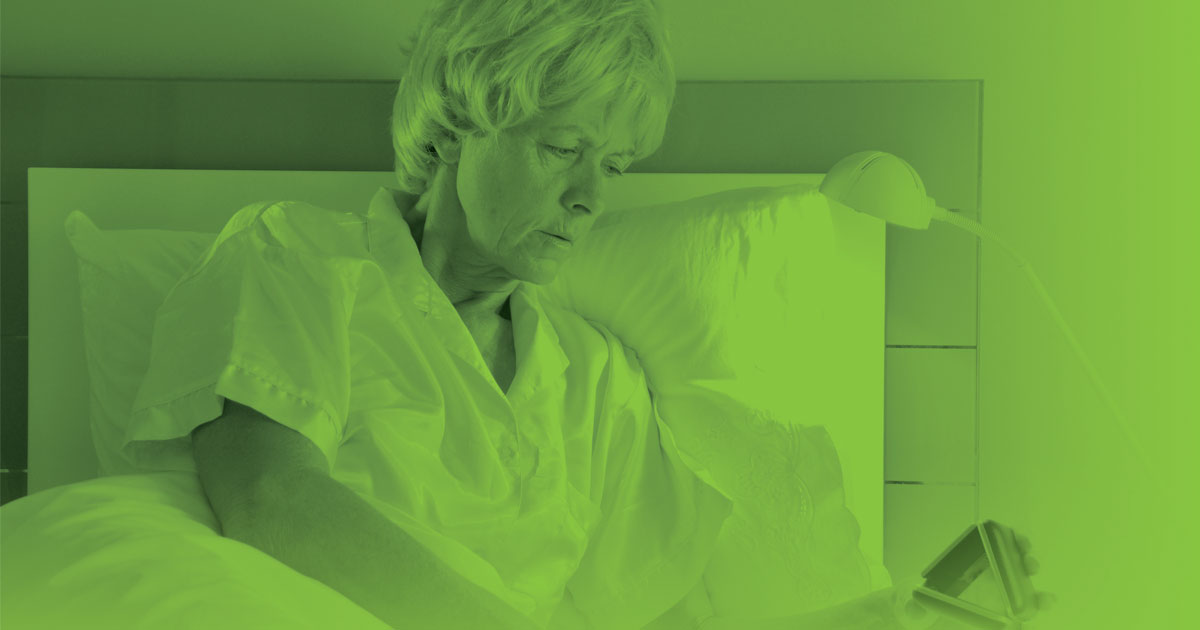Women can lose sleep over a wide variety of stress-inducing issues. We lose precious hours of sleep worrying about our love life, our children, our job, our aging parents, our bills, our weight, our long to-do list – you name it. What most women don’t know is that new research indicates that lack of sleep can contribute to increased risk for Alzheimer’s disease. Scientists have previously reported links between sleep deprivation and fatigue, depression, high blood pressure, heart disease, obesity, and diabetes. The link to Alzheimer’s disease has just recently been identified.
Alzheimer’s disease is an irreversible, progressive brain disorder that slowly destroys memory and thinking skills, and eventually the ability to carry out the simplest tasks. It is estimated that more than 5 million Americans may have Alzheimer’s, and that this number will increase as our population ages.
Alzheimer’s disease is currently ranked as the sixth leading cause of death in the United States, placing it with other common health conditions such as heart disease and cancer as a cause of death for older people.
Alzheimer’s is the most common cause of dementia among older adults. Dementiais the loss of cognitive functioning—thinking, remembering, and reasoning—and behavioral abilities to such an extent that it interferes with a person’s daily life and activities. Dementia ranges in severity from the mildest stage, when it is just beginning to affect a person’s memory and functioning, to the most severe stage, when the person must depend completely on others for basic activities of daily living.
Increasing age is the greatest known risk factor for Alzheimer’s. Alzheimer’s is not a part of normal aging, but your risk increases greatly after you reach age 65. The rate of dementia doubles every decade after age 60. People with rare genetic changes linked to early-onset Alzheimer’s begin experiencing symptoms as early as their 30s. Genetics and family history also play a part in risk for Alzheimer’s, as does having Down’s syndrome, being female, and having mild cognitive impairment (which is minor cognitive decline that is worse than normal, but not significant enough to be called dementia).
So how does lack of sleep lead to an increased risk for Alzheimer’s disease? While there’s no lifestyle factor that’s been definitively shown to reduce your risk of Alzheimer’s disease, there are lifestyle choices that increase the risk, and sleep deprivation has just been added to that list.
Lifestyle habits that increase risk include:
- Lack of exercise
- Obesity
- Smoking or exposure to secondhand smoke
- High blood pressure
- High blood cholesterol
- Poorly controlled type 2 diabetes
- A diet lacking in fruits and vegetables
Interestingly, lack of sleep has been linked to an increased risk of type 2 diabetes, liver disease, and hypertension. It makes sense that the incidence of diabetes, hypertension, and Alzheimer’s disease are all on the rise. Scientists are busy trying to identify the relationships between these chronic conditions, as 37% of Americans report sleeping less than 6 hours/night, and less than two-thirds of US adults sleep the seven to nine hours/night recommended for optimal physical and mental wellbeing. The numbers are huge!
Many sleep deprived adults may think that they can “catch up” on lost sleep on the weekend or “next week” or when life slows down. This may or may not be true. The newest research on the link between sleep and Alzheimer’s-type dementia indicates an immediate increase in beta amyloid plaques in the brain (the protein that clogs brain function in Alzheimer’s) by as much as 43% after only one night of lost sleep. It is unclear if these proteins get cleared away over time or with increased sleep, thus continued research is needed. Until answers are found, why take the risk? Get some sleep!
What You Can Do to Improve Sleep:
- Go to sleep and get up at the same time each day
- Limit daytime naps
- Exercise at regular times each day (and not right before bed)
- Get some natural light every afternoon
- Don’t drink caffeinated beverages late in the day
- Don’s use cigarettes or alcohol as sleep aid
- Use your bedroom only for sleeping or sex
- Create a safe and comfortable place to sleep – dark, well ventilated, and as quiet as possible
- Develop a bedtime routine
- Give yourself 15-30 minutes to fall asleep
- Try not to worry about your sleep
- If you are so tired during the day that you can not function normally, and if it lasts for more than 2-3 weeks, see your health care provider or a sleep specialist
Resources:
DukeMedicine Newsletter, May 2018.
NIH/National Institute on Alcohol Abuse and Alcoholism. “Lack of sleep may be linked to risk factor for Alzheimer’s disease: Preliminary study shows increased levels of beta-amyloid.” ScienceDaily. ScienceDaily, 13 April 2018. sciencedaily.com/releases/2018/






















